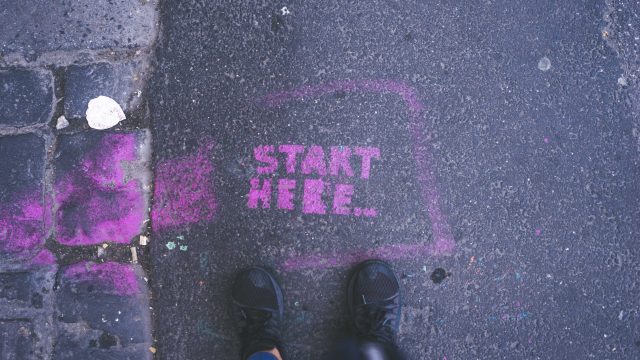Many people don’t know that Amazon actually started back in 1995 as an online bookstore. Jeff Bezos considered books the ideal item for his new venture, as books have a low unit cost and a worldwide demand. Amazon is still likely the largest bookstore in the world due in no small part to people self-publishing their own books using Kindle, but the factors that initially made Amazon successful are still at play today, and books and textbooks are still one of the best ways to make money on Amazon as an online arbitrageur.

In this article we’re going to explore why you might want to focus on sourcing and reselling textbooks on Amazon. We’ll also show you how to use SourceMogul to find textbook arbitrage opportunities, how to open a seller account and how best to ship your items to your customers.
Why resell textbooks on Amazon?
There can be a lot of money in textbooks. The average full time on-campus undergraduate student spent $1,240 on books and supplies in 2021. Students at two-year colleges spent even more at $1,420. As such, if you time it right, you can make big money sourcing textbooks to resell on Amazon.
You should be aware that textbooks are a highly seasonal product, and you will need to ensure that you factor this into your purchasing. Make sure that the item you’re purchasing now, maybe at a discount mid-semester, is going to be in-demand at the beginning of the next semester.
You can combat this seasonality somewhat by having a diverse range of textbooks targeted at different ages. For example, if you just focus on college textbooks, you’re likely going to be busy only during the beginning of each college semester (end of August and beginning of January.) You will likely be struggling to sell your textbooks in the middle of a semester, or during Christmas or Thanksgiving.
You should also be aware that some colleges allow students to sell their textbooks to the college bookstore after the semester ends. College bookstores will fill a quota of books, and once that quota is reached, the price will drop – so be aware that you need to time your sale right, and if you miss the chance, you may not be able to sell your textbooks profitably. Additionally textbooks have a two to four year cycle, and older books lose value quickly. If a new edition has been published, your books have likely lost their value as colleges will insist students buy the latest edition.
Sourcing textbooks to sell on Amazon using SourceMogul
SourceMogul allows you to research millions of products from hundreds of retailers, including very well known book stores such as Barnes and Noble. With SourceMogul, you can very quickly identify profitable textbook arbitrage opportunities in seconds, as well as immediately seeing the product’s sales rank and expected profit potential (of course, you’ll need to factor in Amazon fees and charges too.)
Signing up for SourceMogul is easy, and we offer a 7-day free trial which you can access at the link below.
On signing up, you’ll need to link your Amazon seller account (which we show you how to do down below.) At this point you can start searching. You can even filter by store, for example if you only wanted to look at Barnes and Noble, or by Amazon category.
We’ve written a very comprehensive guide on how to use SourceMogul to source products to resell on Amazon, which we’d highly recommend you check out after signing up.
Opening a seller account – professional or individual?
Now, before you actually get to selling on Amazon, you need to set up an Amazon seller account. We’d recommend a subscription to SourceMogul as well, as this will allow you to far more easily identify profitable textbook arbitrage opportunities.
There is a myth that textbooks are gated on Amazon. They aren’t (although there is a hint of truth to this myth which we cover in the next section) and you can sell most textbooks with an individual seller account without having to apply to sell in gated categories. When selling through an individual account, you will face certain restrictions, such as being unable to set your shipping costs and being liable for a $0.99 fee on every order. However, an individual account is a great way to get started and it’s what we would recommend for a brand new seller looking to dip their toe into online arbitrage.
However, if you’re serious about arbitraging textbooks on Amazon, you should go for a professional seller account. You are charged a fixed fee of $39.99 per month irrespective of how many items you sell, and you get the option to set your own shipping prices, using the promotions, gift services and other special listing features as well as listing your items in the featured offer section (among a whole host of other benefits.)
We’ve written a hugely comprehensive guide to arbitraging on Amazon which takes you through every step of the process of registering an Amazon seller account, which we’d thoroughly recommend you read before going through this process.
Something very important to be aware of when selling textbooks
In the past, there have been reports online of representatives of textbook companies purchasing textbooks from Amazon sellers and (falsely) reporting them as counterfeit. There are also reports of this being done by a law firm in Maryland and lots of complaints that individual textbooks have become restricted for individual sellers due to this practice. The idea is that these companies are looking to eliminate third party sellers so as to capture more of the market and ensure students buy from them and them alone.
We’re not saying that this will definitely happen to you, but it has happened to other Amazon sellers that were arbitraging textbooks and is something you should definitely be mindful of.
As a new seller, you may find that you face severe restrictions on individual titles. The good news is that these restrictions do ease up over time, so the longer you sell and the more trust Amazon can put in you, the more likely you are to be able to sell a wider range of textbooks. Just make sure that in the beginning, you are arbitraging textbooks that Amazon will actually let you sell. SourceMogul should tell you whether you’re going to be restricted on a certain title or not.
FBA or FBM? Shipping your textbooks to your customers
This is a question every Amazon arbitrageur has to ask themselves at some point – whether FBA or FBM is right. FBA stands for “fulfilment by Amazon” and it effectively means that Amazon takes care of the shipping for you – you just send your items to an Amazon warehouse and they take care of the rest. FBM stands for “fulfilment by merchant” and means that Amazon has no part in the delivery or customer service process – all of it is on you.
FBM can be cheaper than FBA, but logistically is much more difficult as you have to organise the delivery of your items and spend your time dealing with customer queries, which, if you’re a one-man band, can be very time consuming. This is why most online arbitrageurs lean towards FBA. There are quite a few other benefits to using FBA, which include but aren’t limited to:
- A higher probability you’ll win the buy box – meaning you’ll sell more products
- Guaranteed Prime shipping – which often can be the difference between winning the sale or not (it’s really hard to get Prime shipping on FBM)
- No need to take care of shipping the items yourself – Amazon does this for you
- No need to handle customer service or refunds/returns – Amazon does this for you
However, it’s not all good, as there are fees involved and you’ll need to make sure there’s enough margin on your textbooks to be able to cover the fees and make a profit.
We’ve written a very comprehensive guide on shipping to Amazon if you want to use FBA. There are some pretty strict requirements you need to meet, and if you don’t it could lead to your items being refused by Amazon, so make sure you get it right.
Frequently asked questions
Are textbooks a gated category?
No. No textbook is ever gated as a blanket policy on all sellers like some other categories. However, what you may find is that you are restricted from selling certain textbooks as a new seller (usually high-volume titles that are often counterfeited). Once you build up trust with Amazon and successfully fulfil a number of orders, you will find that your restrictions will be eased and you’ll have access to sell a wider range of textbooks.
Can I sell PDF textbooks on Amazon?
PDF textbooks are allowed to be sold on Amazon through the Kindle Direct Publishing (KDP) programme. However, don’t think that you can just buy a PDF copy of someone else’s book and sell it on – this isn’t allowed. In order to sell a PDF on Amazon it has to be your book – so unless you’re a textbook author, you won’t be able to do this.
Is reselling textbooks allowed on Amazon?
Of course it is – the online arbitrage of textbooks is perfectly legal and permitted to sell on Amazon and can be a lucrative business model providing you are aware of the limitations and pitfalls you may fall into. You should, however, be using SourceMogul to ensure you’re getting the best profit potential on the textbooks that you buy.
Conclusion
Selling textbooks on Amazon can be a great online arbitrage business model, providing you’re aware of the traps you can fall into. However, you’re going to be wasting a huge amount of time unless you have a good product sourcing tool, and this is where SourceMogul comes in. Scan hundreds of retailers for millions of products (including thousands of popular textbooks) and ensure you’re arbitraging the items with the most potential profit.
Check out our 7 day free trial at the link below.
More strategy
-

6 steps to becoming an Amazon seller. No experience needed.
Becoming a successful Amazon seller is easy - the Amazon brand and logo represents…
-

Top tips for success from a new Amazon seller
We've compiled a list of the top tips for new sellers, gathered from a…
-

How to get ungated on Amazon – your guide to Amazon restricted categories
If you’re looking to expand your online arbitrage business, you might find yourself tempted…
-

How to prepare for Amazon Q4 trading
Every year the holiday season seems to come around a little earlier. As an…




